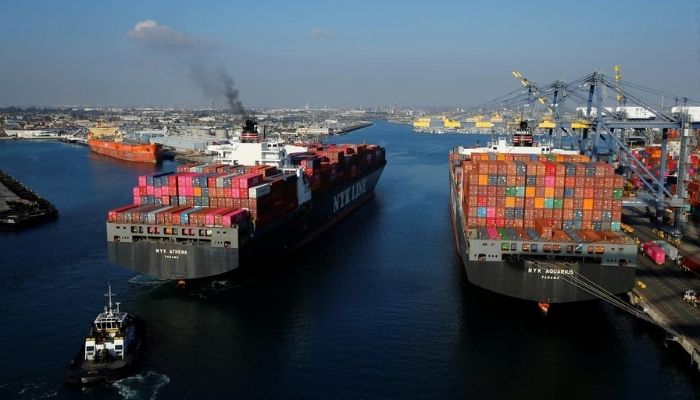Pakistan's trade deficit soars by 55.29%
Trade deficit increased to $48.25 billion in fiscal year under review, up from $31.07 billion from previous year
July 05, 2022

- Pakistan's trade deficit increased by 55.29% in fiscal year that ended June 30, 2022.
- Exports increased by 25.51% to $31.76 billion in fiscal year.
- Massive increase in trade deficit resulted from country's imports growing significantly higher than exports.
Pakistan's trade deficit increased by 55.29% in the fiscal year ended June 30, 2022, owing to increased imports, particularly of petroleum.
The trade deficit increased to $48.25 billion in the fiscal year under review, up from $31.07 billion the previous year, according to the Pakistan Bureau of Statistics (PBS). The massive increase in the trade deficit resulted from the country's imports growing significantly higher than exports during the fiscal year under review.
Exports increased by 25.51% to $31.76 billion in the fiscal year under review, compared to $25.30 billion in fiscal 2020-21, while imports increased by nearly 42% to $80.01 billion in the year under review, compared to $56.38 billion the previous year.
In June, the trade deficit increased by 33% to $4.8 billion, compared to $3.62 billion in June 2021, and by 16.50% compared to May 2022, when the trade deficit was $4.151 billion.
Exports totaled $2.88 billion in June of the current fiscal year, up 5.83% from $2.72 billion in June of the previous fiscal year, and up 10% from $2.62 billion in May of 2022.
Imports increased by 21.57% to $7.7 billion in June 2022, compared to $6.3 billion in the same month in 2021, and by 14% compared to $6.77 billion in May 2022.
“The huge trade deficit in the last fiscal was mainly caused by the high import bill of petroleum and foods groups,” Tahir Abbas, head of research at Arif Habib Limited, told The News. He said that prices of petroleum and food items went up massively in the international market, which pushed up the country’s import bill manifold.
Tahir said that the huge trade deficit has also negatively impacted the current account deficit and he anticipated it to be settling down at around $16.5 billion for the last fiscal. On the other hand, he pointed out that textile exports registered a 26% growth to $19.4 billion in the last fiscal.
Concerning the future trend of imports in the current fiscal year and their impact on the trade deficit, Tahir predicted that the trade deficit would shrink following the government's intervention to reduce imports as well as the State Bank of Pakistan's steps to control imports.
He stated that COVID-19 vaccination imports would be low and that high petroleum product prices in the domestic market would reduce consumption, thereby lowering imports.











